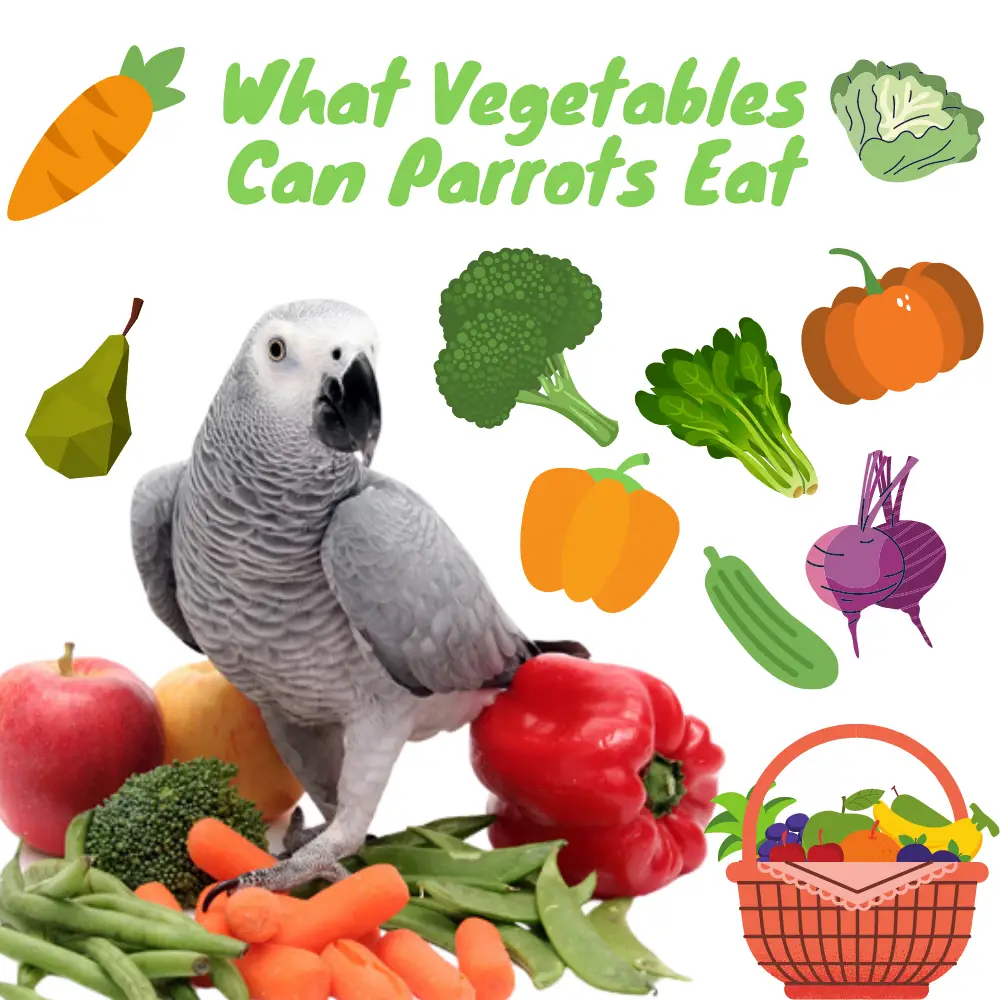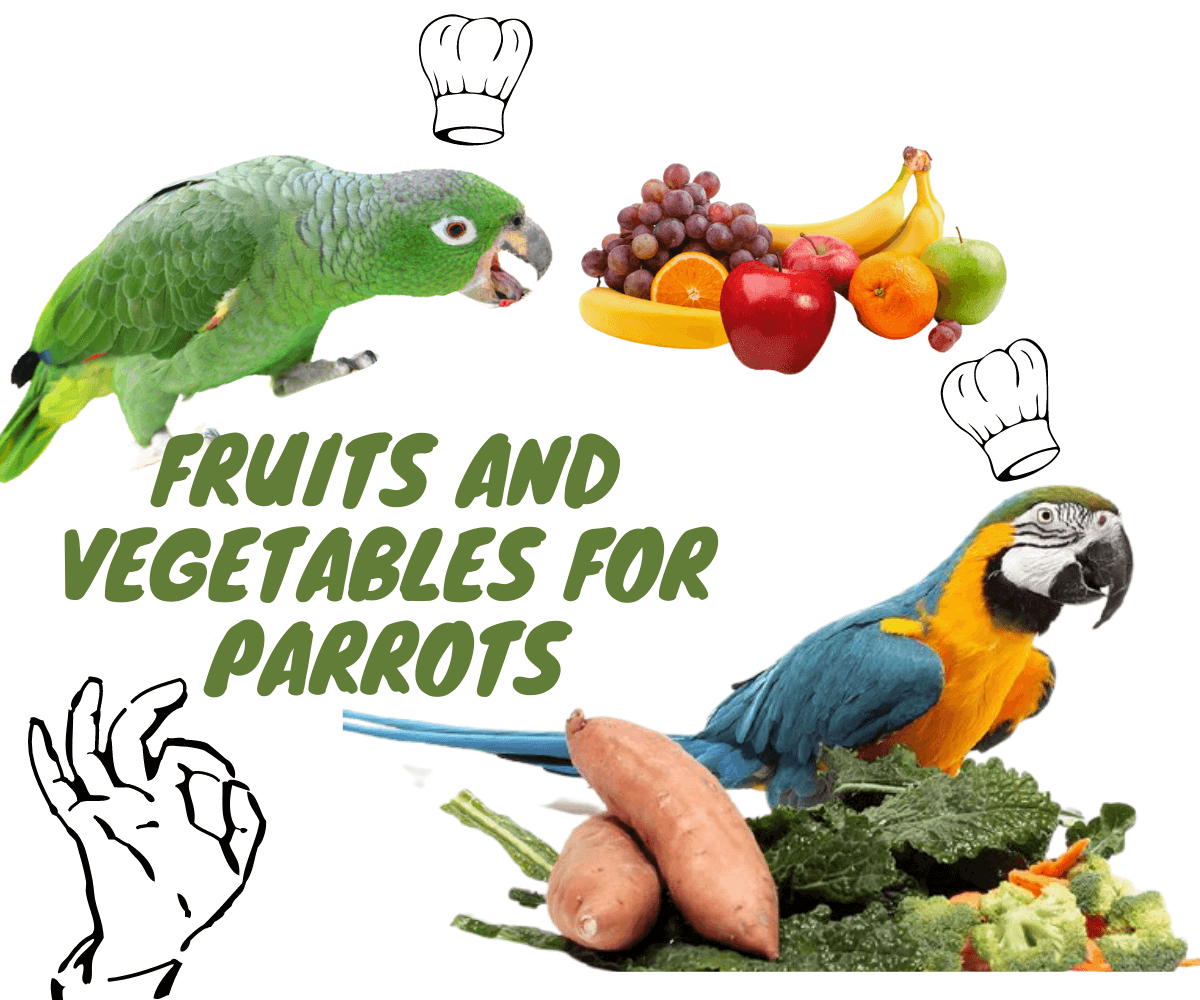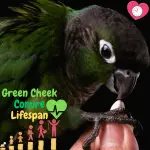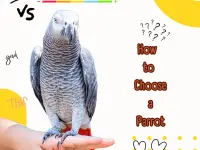
Vegetable Parrots Can Eat: Parrots, parakeets, conures, and other hooked beaks get some of their essential nutrients from seeds, but they also need fresh plants.
They expend a lot of energy, especially flying. They, therefore, need a supplement of vitamins and minerals, which they are aware of, to the point of knowing what type of food to absorb to fill a possible deficiency. However, they are sometimes reluctant to taste those they have never seen.
Do not hesitate to use all the stratagems to make them discover the benefits of vegetables (cut, grated, raw, cooked, pureed, etc.). Also, consider removing seeds from those that contain them.

Parsley and avocado are highly toxic, so never let your parrots consume them.
- Artichoke: artichoke provides vitamins B1, B2, B3, B9, C, E, and K, fiber, copper, magnesium, iron, manganese, folate, calcium, phosphorus, potassium, and zinc. You can give it raw or cooked.
- Bette, or chard: it is low in calories and rich in beta-carotene and vitamins B9 and C. it contains magnesium, sodium, potassium, iron, and calcium.
- Beetroot: Beetroot contains vitamins A, B2, B9, and K, magnesium, manganese, iron, and copper.
- Broccoli: All vegetables can be eaten, but the leaves are the most nutritious part. Vitamins A, B2, B5, B6, B9, C, E, and K are found in quantity, as are phosphorus, iron, manganese, and copper.
- Carrot: in small sections, slices, or grated, this vegetable is appreciated by many birds.
- Celery: it will be given raw or boiled. It is rich in vitamins B5, B6, C, and K, but also manganese and phosphorus.
- Chicory: its leaves are very successful and can be donated without any restraint.
- Brussels sprouts: raw or cooked, it is the king vegetable of the trough of our parrots because it has many virtues.
- Cauliflower: it can be offered raw or cooked, but is not unanimous among parrots.
- Green cabbage: small amounts can be given raw or cooked. It contains vitamins A, B1, B2, C, and E and minerals.
- Red cabbage: this is one of the varieties most likely to seduce our feathered consumers, along with green cabbage. On the other hand, small quantities must be given.
- Pumpkin
- Cucumber: it provides vitamins C and potassium in quantity, as well as calcium, magnesium and phosphorus.
- Squash: an autumn and winter vegetable rich in vitamins.
- Sweet potatoes squash: low in calories, it can be kept for several months before being served to our feathered companions.
- Zucchini: it is full of vitamins C, but also contains vitamins A, B1, and B2.
- Endive: rich in minerals, this vegetable is very popular with most of our birds.
- Spinach: it is not unanimous but its raw or scalded leaves are beneficial for the health of our birds.
- Fennel: its leaves can be given, but in small quantities, because its effects are laxative.
- Green bean: raw or cooked, the bird will draw vitamins B3, B5, and C, as well as potassium, phosphorus, calcium, and magnesium.
- Flat bean: raw or cooked, parrots love it.
- Okra: a small green vegetable that vaguely resembles chili, without having the spicy side.
- Lettuce: low in calories, it contains vitamins A, B9, and K and iron. Romaine lettuce and curly are important sources of vitamin C.
- Let’s lettuce: this small variety of salad gives the best of itself in winter.
- Corn on the cob: it is a very rich food, which should be given preferably young and in small doses. It is difficult to keep, but you can freeze it to overcome this disadvantage.
- Turnip: rich in minerals, it contains calcium, phosphorus, and potassium, as well as vitamin C. It will be eaten raw or cooked.
- Parsnips: ancient vegetable very rich in minerals, fiber, and carbohydrates.
- Sweet potato: Senegal parrots love it. It must be cooked and the eyes, which are toxic, removed. Remove it after a few hours. Subsequently, exposure to light would cause the formation of solanine, a deadly substance when ingested in large quantities.
- Peas: very rich in vitamins C and E, it is the vegetable that contains the most vitamin B1. In addition, it is particularly rich in fiber and contains vitamins B2 B3, B5, B8, and B9. It will be given raw or cooked, in small doses.
- Chili: a source of vitamins very appreciated by our companions, whether fresh or dry.
- Pepper: the significant presence of vitamins A, B2, B3, B6, C and K make it a recommended food, even if parrots do not always appreciate it. It also contains copper and manganese.
- Pumpkin
- Potimarran: this vegetable keeps for a long time and its skin and flesh are highly appreciated by most parrots.
- Red radish: this small vegetable that is eaten raw, combines many qualities. Low in calories, it provides vitamins A, B1, B2, B3, B9, C, and PP. It is rich in fiber, minerals, and trace elements. Iron, copper, zinc, fluorine, and in small amounts iodine and selenium.
- Black radish: its sedative and antiseptic properties can be beneficial for our parrots.
- Rutabaga: root vegetable belonging to the turnip and radish family.
- Tomato: it is an unloved parrot very rich in vitamins B3, B6, C, E, and K and potassium, copper, and manganese. Do not give in large quantities.
- Jerusalem artichoke: this root vegetable can be offered raw or cooked to your parrots. It offers the advantage of participating in the fixation of calcium in their body.
This list is completed regularly, especially during tests carried out with our own birds. Do not hesitate to come back and consult it. We also have at your disposal the list of fresh fruits that can be safely offered to your Psittacids as well as toxic foods for them.
How to get your parrot to eat vegetables
SOURCE: Love of Pets




















